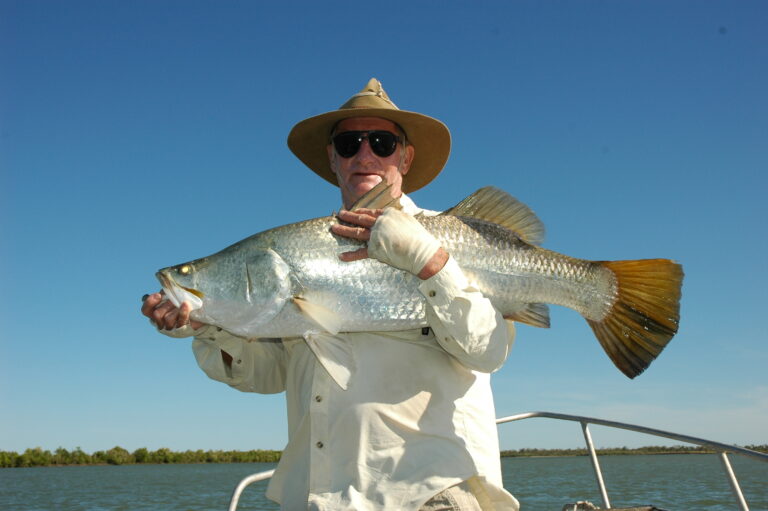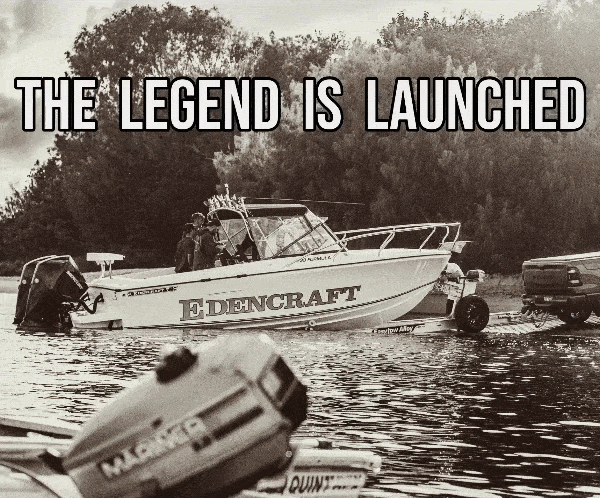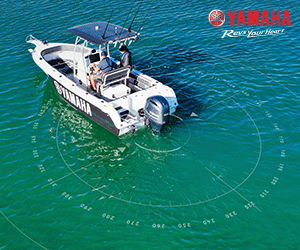Dream On – By Dick Eussen
Following the demand by UNESCO and the ICUN to the QLD Government to ban all net fishing north of Cooktown (Fish and Boat issue August 2023), Fisheries Minister, Mark Furner, announced that a new ‘working’ group has been created to ‘maximise’ fish tourism revue streams for Cape York communities.
The11-member group is a non-statutory advisory body that will provide guidance and advice to Fisheries Queensland and the Sustainable Fisheries Expert Panel and other government agencies to inform on the best management practise.
Little is known of the members, who is on it or their qualifications, if any, apart from Lockhart River Shire Council CEO, Dave Clarke, who represents the Lockhart River region.
Other group members will represent Cape York Indigenous communities, community development, the fishing industry (?), local government, non- government organisations (?) and private enterprise, according to Mr. Furner.
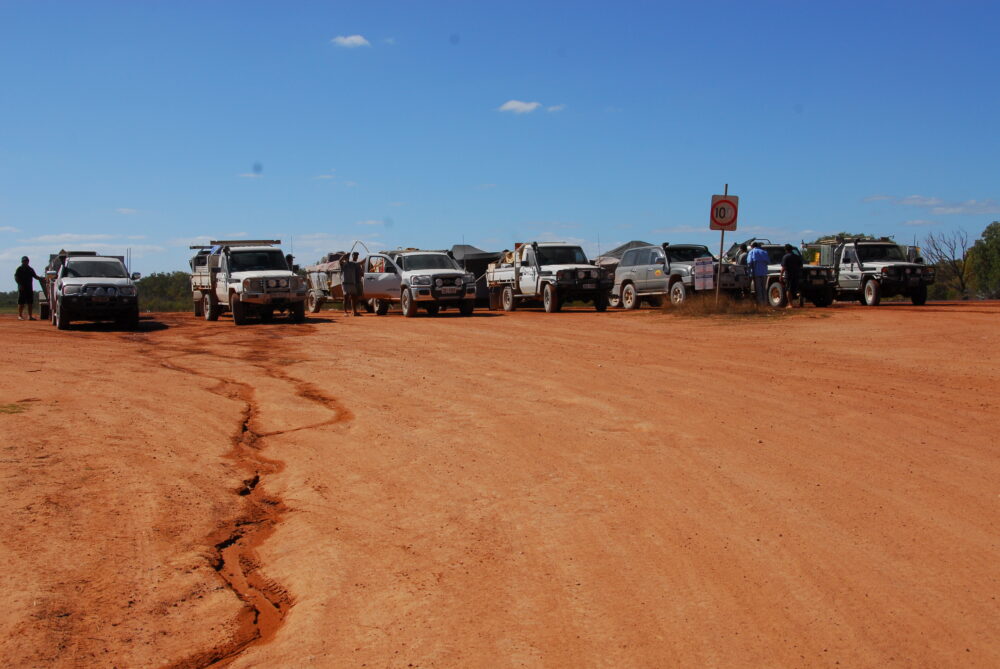
Fishing is huge on the Cape’s west coast in the dry season, but the east coast is at the whims of the trade winds and largely avoided.
A talk-fest meeting will be held in Cairns in September but there are rumours of ‘job for the boys’ in circulation, with recreational fishers fearing a shut-out in Indigenous controlled zones or having to pay for the privilege of fishing.
It’s all part of the $160 million plan for the newly created net-free zones in the northern third section of the Great Barrier Reef Marine Park.
It has come under fire by the commercial fishing industry, already smarting from new regulations that have slashed the Spanish mackerel intake following a disputed stock count that indicated that the mackerel fishery is down by 17 percent of its estimated biomass.
Mr. Furner, who announced the new working group while in the Torres Strait said, “Charter fishing and fishing tourism are an important economic opportunity for Cape communities and this working group will help to identify these opportunities and make them real. These partnerships with Cape communities will play an important part in developing and maintaining fisheries.”
Cook MP, Cynthia Lui, said that the goal of the working group was to “maximise the value of our world-renowned (?) Cape fisheries in a sustainable way.”
There you have it and while the new group is working out, or in my own words, dreaming up, ways to attract tourist fishing, recreational fishers won’t be dropping pots of gold in communities anytime soon.
The east coast of the Cape is subject to the Southeast trade wind for weeks on end during the dry season, and apart from Rinyirru N/P, which has several large rivers and protected bays, the northern coastline has no large, sheltered inlets, apart from the Lockhart River, but getting there from the boat ramp means getting wet from the blustery trade winds in Lloyd Bay.
The same applies to the small Pasco River inlet on Weymouth Bay.
The Starke River, Running Creek Track, Port Stewart, Portlands Roads and the Captain Billy Track also provide access to the coast.
The other prominent area is the Kennedy Aggregation, on the east tip of the Cape, an amazing fish-rich area which houses a couple of fishing operators in the dry season.
None of these aggregations have large runs and no flood plains, apart from Rinyirru N/P, thus barramundi numbers can be depleted by overfishing.
Another problem is access, lack of vehicle and camp security, as theft is rife on the Cape, with vehicles and camps having been burned in remote areas, so security and education is a priority.
And who is going to pay to set up fishing lodges and in-survey vessels needed for tourism fishing and where will experienced skippers come from?
Will it be done by communities, some who have a poor track record of sustaining tourism ventures, or will it follow the very successful camp/fish ventures that are operated on the lower Cape York west coast communities that allow people to do their own thing from bush camps.
The whole thing smacks of ignorance from Brisbane playing on the hopes of community dreams of huge tourism dollars coming to them soon, which of course won’t happen as the economy is currently running rampart and recreational fishers are saving money by taking tours that guarantee fish, like the NT’s Top End, Siesia and Weipa.
If the QLD Government thinks they have created a magic new fishing region that will challenge the NT’s Top End, tell them they are dreaming.
Don’t get me wrong, I love fishing the Cape’ east coast and have done so many times, but it’s tough fishing with fish, especially barramundi, hard to come by when the trade winds blow, while there is a mine field of green and yellow zones along the coast.
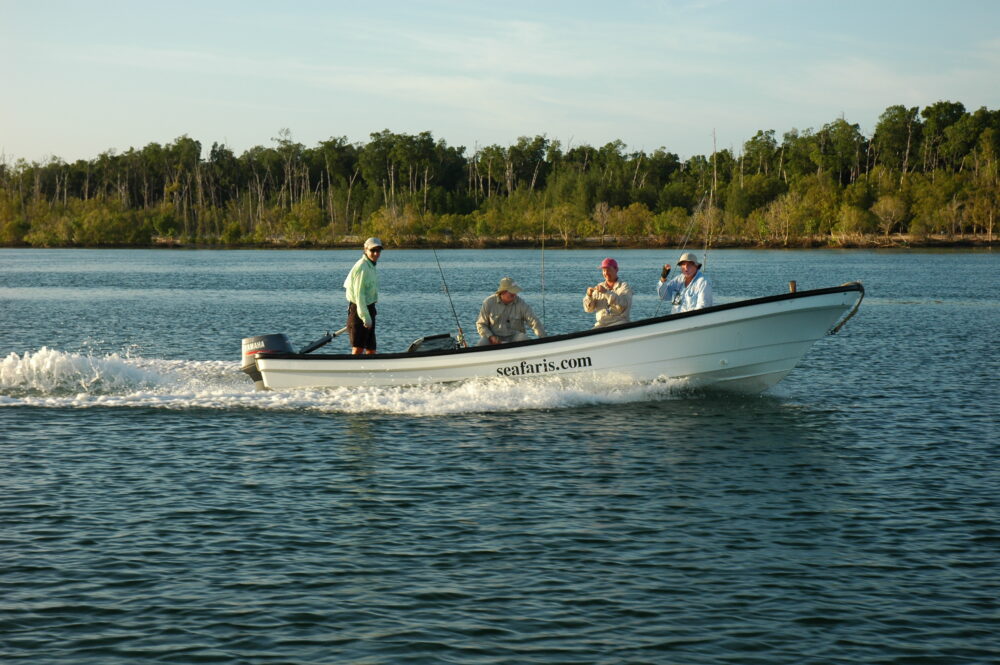
The Kennedy Aggregation on the tip of the Cape has good fishing, and is well utilised by existing operators at Siesia.
The local MLA is ignorant in her statement of ‘world-renown fishing,’ as it only applies in the GBR waters, 40 nm off the coast as, apart from the streams flowing into Melville Bay, few people ever fish the streams north from there and those who do don’t mind the cost and hard work that is involved getting there.
The odd mothership does fish the trackless streams on the east coast, but few people can bear the costs, while visitors generally spend that on sail and marlin fishing far off the coast with the money staying in Cairns and Port Douglas.
In fairness Mr. Furner has been very supportive to recreational anglers, especially the net-free zones in Rockhampton, Mackay and Cairns, but a better and more productive plan would be to ban all nets from Cape Grafton, near Cairns to Cape Tribulation to provide fishing for young people who complain they have nothing to do.
Go back a few decades and remember the kids that used to hang about the Cairns Esplanade armed with fishing lines, spears and dilly pots.
Weipa is another area that would benefit hugely from net-free zones, as only the Gulf of Carpentaria can match the fishing in the NT, due to having the largest floodplains in the country.
The ALP Government continues to play politics on the Cape, first it was a failed World Heritage listing, followed by Wild Rivers Legislation that was not accepted by locals.
Next the government purchased most working cattle stations on the Cape and gave them to Indigenous people to work with some 40 percent to be set aside as national parks, but today abandoned homesteads, burned cattle yards, weeds, feral cattle, pigs and brumbies roam there, while an annual burning regime brings in carbon credits to sell to China and to uprate the State’s climate change ranking.
How the new ploy will work will be judged soon and in the meantime we can only hope that common sense and goodwill prevails by the selected ‘working’ group…


